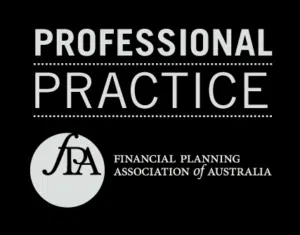17 April 2023
The why and what of creating a legacy for business owners

Planning for the future is important for whatever life stage you are at. Estate planning is a major part of your overall financial plan and is so much more that just writing a will.
Estate planning is the process of setting up your estate so your assets (such as property, shares and insurances) pass onto your beneficiaries. This may involve a variety of estate planning strategies, such as establishing trusts, restructuring your investments, setting up superannuation beneficiaries and reviewing your life insurance policies.
>> Why is this important?
Estate planning is a way to ensure that if you were to pass away, your family assets are distributed for your nominated beneficiaries according to your wishes. By setting out exactly how you want your estate to be structured and distributed, you can bring peace, security and clarity. Plus, any likelihood of disputes between beneficiaries will be minimised.
>> What is the difference between estate planning and a will?
Both estate planning and a will give instructions on how you want your assets to be distributed, but a will is only one part of the puzzle in estate planning. Essentially, a will sets out what you want to leave and to whom as well guardianships details, such as who would look after and underage children of financial dependants. It primarily covers assets you won in your personal name and any dependants.
Estate planning covers a broader scope and goes into more detail. It deals with family assets that may be held in a company or trust and how they will be structured, distributed or managed upon your death. An estate plan seeks to ensure the continuity of control over assets and businesses that may not be in your personal name, but that you control, so they continue on or after your death. An estate plan could also include identifying who will have the authority to manage your finances and businesses if you are no longer able to control them due to mental incapacity or death.
It can also set up how family assets will be managed if your children are too young to inherit them upon your death.
>> What does estate planning cover?
Estate planning generally covers the structure, distribution and transfer of all family assets, which may include your investments, superannuation and life insurance. It would appoint the people who will look after your estate – the executor of your will – who will ensure that the instructions are followed including dealing with the control of any trusts.
Most estate plans also include other matters relevant to the end of life, such as powers of enduring attorney, powers of enduring guardianship and advanced health directives. This ensures that, if you are unable to make decisions for yourself, someone can make them for you, according to your wishes.
>> And who would benefit from estate planning?
There is a common misconception that estate planning i only for the wealthy! However, anyone who controls assets such as shares, property, jewellery, has a superannuation fund or a life insurance policy would benefit from having a plan in place that deals with how these should be distributed and who they should go to.
>> Estate planning for blended families
Blended families is normal, but unfortunately, family estate planning for blended families can be complicated. Usually, there are children, spouses, properties and assets from at least two (2) marriages to consider.
Only assets under a particular persons’ estate will be dealt with under their will. Any assets outside of a person’s estate cannot be distributed various children or different partners. That is why is it so important to leave clear, unambiguous plans. To prevent future challenges and disputes, family estate planning takes into consideration how assets in blended families can be distributed to ensure legal and financial obligations are met.
Let’s chat if you are planning for the future and building, protecting and managing your assets has become important for you and your loved ones.
All information provided is for informational and general purposes only, and shall not be relied upon as personal financial advice.

















